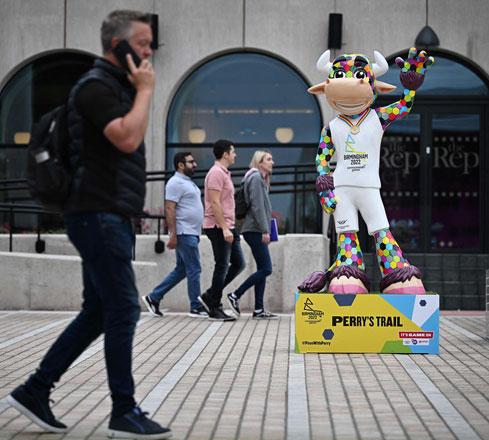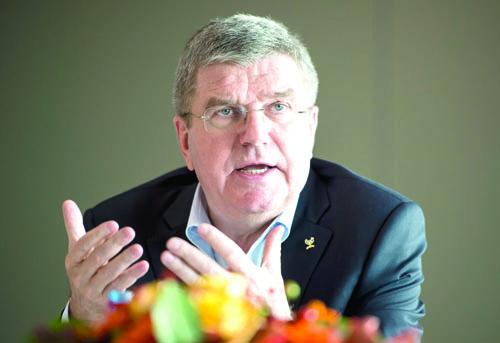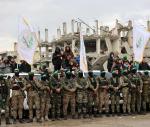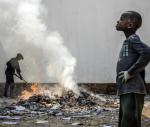You are here
Commonwealth Games defy doomsayers to remain afloat
By AFP - Jul 27,2022 - Last updated at Jul 27,2022

Pedestrians walk past a model of the Commonwealth Games mascot ‘Perry’ is pictured in Birmingham, England, on Tuesday, ahead of the Commonwealth Games (AFP photo by Paul Ellis)
BIRMINGHAM, United Kingdom — The Commonwealth Games are sometimes seen as a quirky relic in the modern sporting calendar but former International Olympic Committee (IOC) marketing chief Michael Payne says they have consistently defied the doomsayers.
The 22nd edition of the Games opens in Birmingham on Thursday, bringing together around 5,000 athletes from 72 nations and territories — mostly former British colonies — to compete in 19 sports over 11 days.
Some track and field stars will be absent when the competition gets under way — just days after the end of the world championships in Eugene, Oregon.
But there will still be plenty of big names on show at the event, which features sports as diverse as lawn bowls and marathon running.
The Commonwealth Games are not on the scale of the Olympics that Birmingham once aspired to host — the city was beaten by Barcelona for the right to put on the 1992 Games — but officials hope they can provide a big economic boost for the area.
According to the Financial Times, the West Midlands Combined Authority estimates the event will be worth £1 billion ($1.2 billion) to the regional economy.
Payne, credited with transforming the IOC brand and finances through sponsorship, said the Commonwealth Games had shown remarkable resilience over the decades.
“People have been talking of the demise of the Commonwealth Games for nearly half a century but they are still going, so I would not write them off just yet,” he told AFP.
Another former IOC marketing executive, Terrence Burns, who since leaving the organisation has played a role in five successful Olympic bid campaigns, said it was important for the event to find its own niche and evolve accordingly.
“These other Games are not the Olympic Games but tend to try to mirror them in look, feel, and impact,” he said. “That’s just not possible or credible.
“So I think they need to redefine ‘success’ and build their product accordingly.”
‘Proud nation’
The Commonwealth Games have, like other global events in recent years, had trouble in attracting host cities.
“Finding nations willing to host is a challenge for many sports bodies these days,” said Payne. “That is why you have seen a far more flexible process introduced to identify potential hosts.
“But the Commonwealth Games do face a major hurdle, as their marketing and sponsorship revenue potential is limited and, as such, nations wanting to host must be willing to commit to $1 billion of taxpayer support.”
Burns said the nature of the Games, held every four years, throws up obstacles for organisers.
“I think an event that aspires to be global but by definition limits its participation base to a finite set of nations and territories, has a global fan interest challenge as well as a hosting city challenge,” he said. “That part is just maths.”
Steps have been taken to remodel the event, with the Commonwealth Games Federation last year publishing a roadmap for the future.
One recommendation was for “approximately” 15 sports to feature at the Games, with athletics and swimming compulsory but some flexibility to allow hosts to choose from a wider list of core sports.
Payne says that makes sense but he takes issue with a bolder idea of awarding co-hosting admittedly “only in exceptional circumstances” to non-Commonwealth countries.
“Like staging the Asian Games in Europe, it is a non-starter.”
He says the Commonwealth Games are a vital showcase for smaller nations and territories that struggle to attract compete at the bigger events.
“For many of the smaller nations this is their one moment on the world sports stage, with an opportunity to shine and win medals,” said the 64-year-old Irishman.
“That is important for these nations and governments to drive local sports interest. At the Olympics there is no chance for them to medal.”
This is reflected by the lengths the impoverished Sri Lankan team have gone to get to Birmingham.
Commonwealth Games organisers and the Sri Lanka cricket board have covered their costs.
“We want to stand like other nations, in front of our flag, as a proud nation, keeping our backs straight, our heads strong and we want to do our best,” said Dampath Fernando, the team’s chef de mission.
Related Articles
BIRMINGHAM, United Kingdom — The Commonwealth Games must be “modern and edgy” to stay relevant to a young audience, according to federation
reaking from the tradition of awarding the Olympics only to a single host city, the IOC is opening the door to possible wider bids — including bids from an entire country, joint bids from more than one city and even the possibility of events held in more than one country.
AMMAN — HRH Prince Feisal, president of the Jordan Olympic Committee (JOC) and member of the International Olympic Committee (IOC) Executive

















